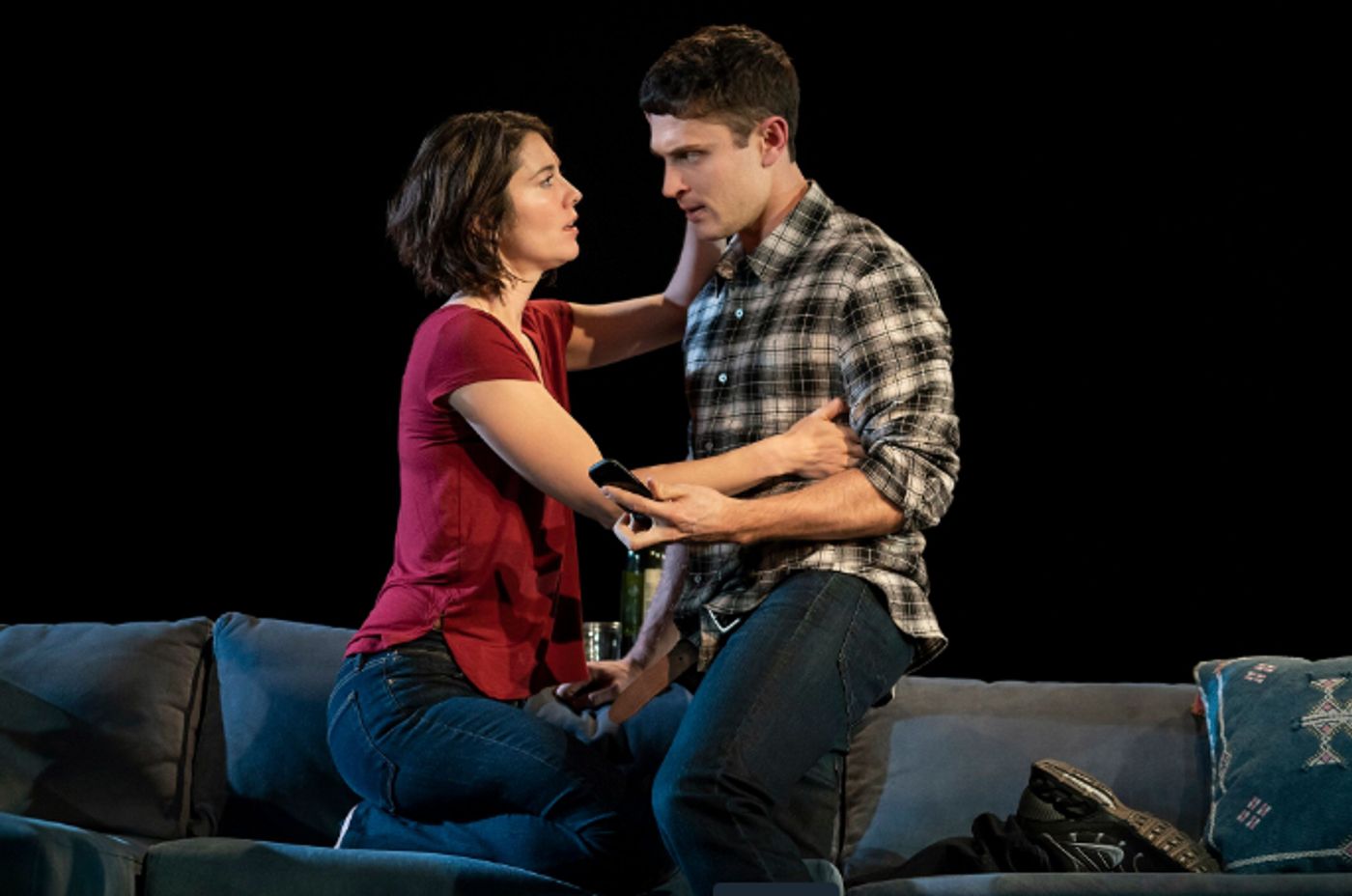Review: Mary Elizabeth Winstead and Colin Woodell in Christopher Shinn's DYING CITY
Playwright Christopher Shinn, who directs Second Stage's new production of his 2008 Pulitzer finalist Dying City, places a large black void at the upstage wall as part of designer Dane Laffrey's otherwise realistic depiction of rather non-descript Manhattan apartment. Don't, like this reviewer did, spend any part of your time at this 90-minute drama waiting for some practical use of this seemingly out-of-place feature. Its purpose, perhaps, is to represent that emptiness that can be felt both individually and collectively after a tragedy.

(Photo: Joan Marcus)
Likewise, the playing area is surrounded by a thick frame that not only gives the sense that the characters are artificially on display but lifts the stage to a height that will surely require those sitting up front to be looking upwards at the proceedings.
The story begins in 2005, in the apartment of Kelly (a very low-key Mary Elizabeth Winstead, making her stage debut), a therapist whose reservist husband Craig has died while fighting in Iraq. The place is near-empty and Kelly's tense manner suggests she'll soon be vacating.
The door buzzer unexpectedly rings and she hesitantly allows in Peter, (Colin Woodell), Craig's twin brother; an actor who is currently in town playing one of the Tyrone sons in LONG DAY'S JOURNEY INTO NIGHT. He may no longer be, however, as he just walked out in the middle of a performance after the leading man whispered a homophobic remark to him while on stage.
The two haven't seen each other since Craig's funeral. While cordial now, Kelly has obviously been avoiding contact and has not answered Peter's numerous messages.
This is a play where the author slowly reveals information about the past in order to determine how the characters got to where they are today, and a major feature of that process is to have the actor playing Peter doubling as Craig in flashback scenes set a year earlier. (There are literally bright flashes of light, supplied by designer Tyler Micoleau, between scenes.)

Mary Elizabeth Winstead
(Photo: Joan Marcus)
Issues regarding the status of Craig and Kelly's marriage as he left for the Middle East, the twins' upbringing by their abusive father, the contents of a batch of emails written by Craig and the circumstances behind his death begin adding up to a fuller, if not fully satisfying, picture.
While there are still American troops serving in the Middle East, Dying City certainly contained more immediacy and relevance to a larger number of playgoers when first seen a dozen years ago. Shinn's production seems to settle into its own subtly a bit much and though the capable actors work hard, the results are minimal. Top-shelf director Lila Neugebauer was originally set to helm this production but bowed out to accept her first feature film assignment. One wonders if she would have found greater depths and a steadier pulse in the playwright's text.

